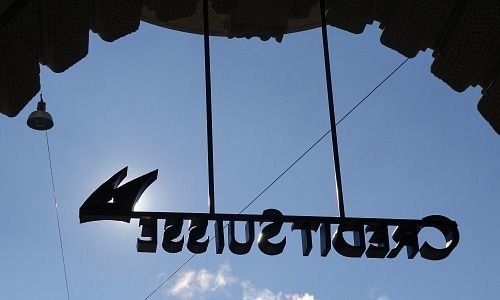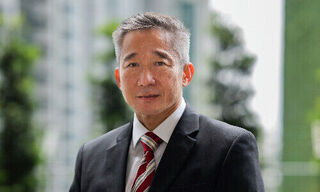Has Swiss Regulator Chipped a Pass to Oligarch?
Switzerland's regulator has pinpointed shortcomings in Credit Suisse's supervision of a former star banker. The decision could be grist for the mill of clients claiming damages from the Swiss bank.
The Swiss finance regulator Finma and Credit Suisse disclosed the conclusion of a long-running enforcement probe into the Swiss bank in parallel statements on Tuesday.
The watchdog sanctioned various shortcomings in the Zurich-based bank's handling of money-laundering prevention; Credit Suisse emphasized that the cases in question –FIFA, the world's governing soccer body; Brazilian state-controlled oil firm Petrobras; and PDVSA, Venezuela's state oil company – have prompted organizational improvements to prevent a repeat of the scandals.
Let Loose
The scandals belong to the past, allowing Credit Suisse to look into a profitable future, as laid out by CEO Tidjane Thiam in a recent interview – or do they? The regulator may be undermining the bank's case with illustrative descriptions of how Credit Suisse dealt with the erstwhile private banker – «since criminally convicted,» as Finma noted – who brought many of the questionable funds.
«The relationship manager in question – who was very successful in terms of assets under management – breached the bank's compliance regulations repeatedly and on record over a number of years,» Finma said. But instead of sanctioning the banker for his improper dealing with so-called politically exposed persons, or PEPs in banking jargon, Credit Suisse let him loose.
«Inadequate Supervision»
The private banker enjoyed financial rewards from the bank and favorable reviews, all while violating money-laundering rules. «The supervision of the relationship manager was inadequate due to this special status,» Finma said.
It is exactly this supervision which is the linchpin for a separate civil court proceeding concerning former star banker Patrice Lescaudron. The 54-year-old Frenchman was convicted in February after confessing to a fraud scheme involving clients including former Georgian Prime Minister Bidzina Ivanishvili. The businessman-turned-politician claims Lescaudron, who worked out of Geneva, cheated him out more than $100 million.
Was CS Reckless?
For its part, Credit Suisse accuses Lescaudron, who is serving a five-year sentence in a Geneva prison, of cheating the bank out of 45 million Swiss francs ($46.5 million) in fees and commissions.
On Monday, the bank told finews.asia that the criminal conviction confirmed Lescaudron had violated internal guidelines as well as Swiss law and hoodwinked controls, and didn't have internal help for his fraud scheme. The former private banker had exerted considerable criminal energy in keeping the scheme going – and hidden, according to Credit Suisse.
Weighty Ivanishvili
But Ivanishvili, who still enjoys enough political influence in Georgia to have toppled the current PM three months ago following a dispute, isn't going away. Lawyers for the allegedly short-changed billionaire argue that Credit Suisse hired and entrusted a former cosmetics salesman with little experience in finance.
The bank was reckless to allow him near major Russian clients, ostensibly simply because Lescaudron lived in Moscow for several years, their thinking goes. Credit Suisse has countered that it didn't know what the former private banker was doing with the client funds. The criminal trial centered on alleged wrong-doing by Lescaudron, and didn't take a stance on the Ivanishvili vs Credit Suisse spat.
Implicated by Finma?
Three months ago, Credit Suisse surprised observers by hiring a law firm to attempt a reversal of one of Lescaudron's convictions: mismanagement tied to the accounts of two well-known individuals.
Lawyers for Ivanishvili argue that the mismanagement charge would implicate Credit Suisse itself: Lescaudron was only able to pursue wrong-doing because he was inadequately supervised, they say. The oligarch hopes to tie his civil case against Credit Suisse to the legal nuance.
Finma may have unwittingly kicked a chip pass for the oligarch's civil suit in with its determination that Lescaudron's supervision by Credit Suisse was «inadequate». The regulatory sanction is far from the last word in the Lescaudron money-laundering scandal for Credit Suisse.



























